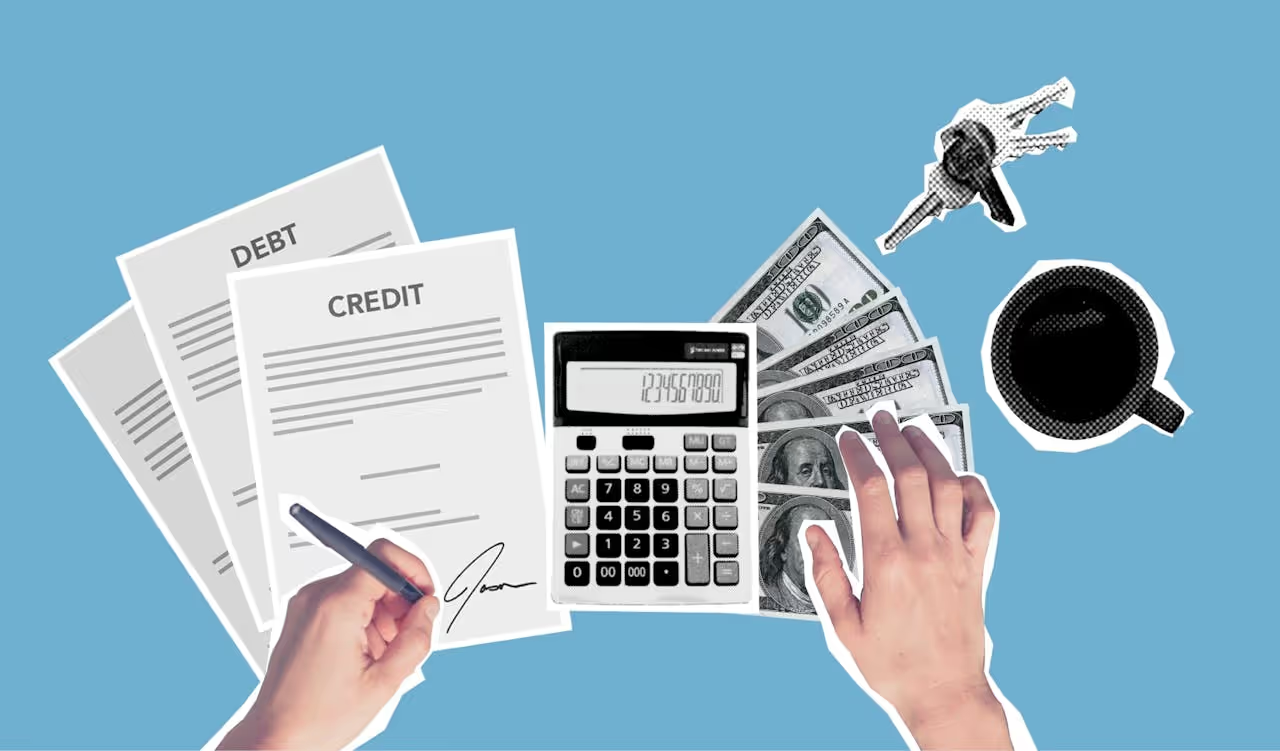Financial freedom is a goal that many people aspire to achieve. It is the ability to live comfortably without the stress of financial constraints, knowing that you have enough money to cover your expenses and enjoy life. But how do you determine the magic number to provide you with this financial freedom?

How do expenses impact the amount of money needed for financial freedom?
Understanding the different types of expenses is crucial in determining how much money you need for financial freedom. Each category plays a role in your financial planning, from essential expenses like rent, groceries, and healthcare to discretionary expenses such as dining out and travel.
Managing and reducing expenses is essential to reach financial freedom faster. By cutting down on non-essential expenses and finding ways to lower fixed costs, you can free up more money to save and invest for the future.
Inflation also has a significant impact on future expenses. As the cost of living increases over time, your financial goals need to account for inflation to ensure that the corpus you accumulate is enough to sustain your lifestyle.
What role does debt play in achieving financial freedom?
Debt can hinder your financial freedom goals by tying up your income in interest payments and limiting your ability to save and invest. It is essential to tackle and eliminate debt to free up more money for building wealth and securing your financial future.
Strategies such as debt consolidation can help you manage your debt more effectively and improve your financial stability. By consolidating multiple debts into a single payment with a lower interest rate, you can pay off your debt faster and save money in the long run.
How does investment influence the journey towards financial freedom?
Identifying suitable investment options based on your individual circumstances is key to achieving financial freedom. Whether you prefer stocks, real estate, or mutual funds, the right investments can help you grow your wealth over time.
Balancing risk and return in your investment portfolio is essential to secure your financial future. By diversifying your investments and aligning them with your financial goals, you can optimize your portfolio for long-term growth and stability.
Goal-based investing is also crucial for achieving your financial aspirations. Setting clear investment objectives allows you to track your progress and make informed decisions to move closer to financial freedom.
What factors determine the amount of money needed for financial freedom?
Assessing your personal aspirations and financial goals is fundamental in determining how much amount you need for financial freedom. Whether you aim to retire early, travel the world, or provide for your children’s education, your financial plan should align with your aspirations.
Considering the relationship between money and happiness in financial planning is essential. While money is necessary for security and comfort, it doesn’t really buy happiness. Understanding what truly makes you happy can guide your financial decisions to achieve a fulfilling life.
Individual liability, such as loans and mortgages, can impact your journey towards financial freedom. By managing your liabilities effectively and reducing debt, you can accelerate your path to financial independence.
How does inflation affect the calculation of financial freedom?
Understanding the long-term impact of inflation on your financial goals is crucial for planning your financial future. Inflation erodes the purchasing power of your money over time, making it essential to adjust your financial plans to combat its effects.
Retirement planning should include strategies to protect your savings from inflation. Investing in inflation-adjusted instruments such as TIPS or diversifying your portfolio can help preserve the value of your money and ensure a comfortable retirement.
By considering inflation and adjusting your financial plans accordingly, you can build a secure financial future that withstands the challenges of rising prices and changing economic conditions.
Financial freedom is a goal that many aspire to achieve. It involves having enough money to live comfortably without the need to work actively for a living. However, the question of how much Rupees is enough for financial freedom is a complex one that varies from person to person. Finding your magic number requires a thorough understanding of your expenses, the impact of inflation, debt management, investment strategies, and aligning your financial needs with your life aspirations.
Understanding Expenses in Relation to Financial Freedom
Identifying essential versus non-essential expenses is crucial in determining how much amount you need for financial freedom. Essential expenses are those necessary for basic living, such as housing, food, and healthcare, while non-essential expenses are discretionary, like dining out or luxury items. By creating a realistic budget that prioritizes essential expenses and sets limits on non-essential ones, you can better manage your finances and work towards your financial goals. Regularly tracking and adjusting your expenses is key to staying on course.
The Impact of Inflation on Your Financial Freedom Goal
Calculating the effects of inflation on future expenses is essential when determining your financial freedom goal. Inflation erodes the purchasing power of money over time, meaning that the same amount will buy less in the future. To mitigate inflation’s impact, you can consider investing in assets that provide returns exceeding inflation rates or adjusting your financial plan to account for rising prices. By staying proactive, you can safeguard your savings against inflation.
Managing Debt on the Path to Financial Freedom
Developing a debt repayment strategy is essential to achieving financial freedom. Debt can impede your ability to save and invest effectively, diverting money towards interest payments instead. Understanding the impact of debt on your savings and investments can help you prioritize between debt repayment and wealth building. Setting clear priorities and consistently reducing debt can accelerate your journey towards financial freedom.
Investment Strategies for Achieving Financial Freedom
Diversifying your investment portfolio is key for long-term growth and financial security. By spreading your investments across different asset classes, you can balance risk and reward, reducing the impact of market fluctuations on your overall wealth. Consulting with a financial advisor can provide you with guidance tailored to your financial goals and risk tolerance, helping you make informed investment decisions that align with your objectives.
Aligning Financial Needs with Life Aspirations
Setting clear financial goals based on your personal aspirations is essential for achieving financial freedom. Understanding the relationship between money and happiness can guide you in allocating resources towards experiences and things that truly matter to you. Adapting your financial plan to accommodate changing life circumstances, such as saving for children’s education or retirement, ensures that your financial needs align with your evolving aspirations.
Q: How can I determine the amount of money I need for financial freedom?
A: The amount of money needed for financial freedom varies from person to person and depends on individual circumstances. Factors such as your lifestyle, expenses, liabilities, personal aspirations, and where you live in India all play a role in determining your financial needs.
Q: Is there a specific amount of money that guarantees happiness and financial freedom?
A: No fixed amount of money guarantees happiness, as money and happiness are subjective and relative. What may be enough for one person to live comfortably, but may not be sufficient for another?
Q: How much money is enough for me to live comfortably in India?
A: The amount of money needed to live comfortably in India depends on your monthly expenses, personal aspirations, and lifestyle choices. Factors such as having a crore or fixed deposits can contribute to your financial security.
Q: Can earning more money lead to increased happiness?
A: While earning more money can provide financial security and allow for more opportunities, studies have shown that there is a threshold to how much money can contribute to overall happiness. Beyond a certain point, additional wealth may not significantly impact day-to-day happiness.
Q: How much money should I aim to accumulate for long-term financial peace of mind?
A: The answer to this question varies for each individual depending on their income, wealth goals, and lifestyle choices. Using a financial calculator can help determine the amount needed to achieve financial peace of mind.
Q: What is a thumb rule to determine if I have enough money for financial freedom?
A: A common thumb rule to determine if you have enough money for financial freedom is to have enough savings or investments to cover your expenses and liabilities without relying on external sources of income.
Q: Are meaningful experiences more important in life than accumulating wealth?
A: Financial security is essential for peace of mind, but studies have shown that meaningful experiences and relationships contribute more to long-term happiness than wealth accumulation. Finding a balance between financial stability and life experiences is critical to overall well-being.





